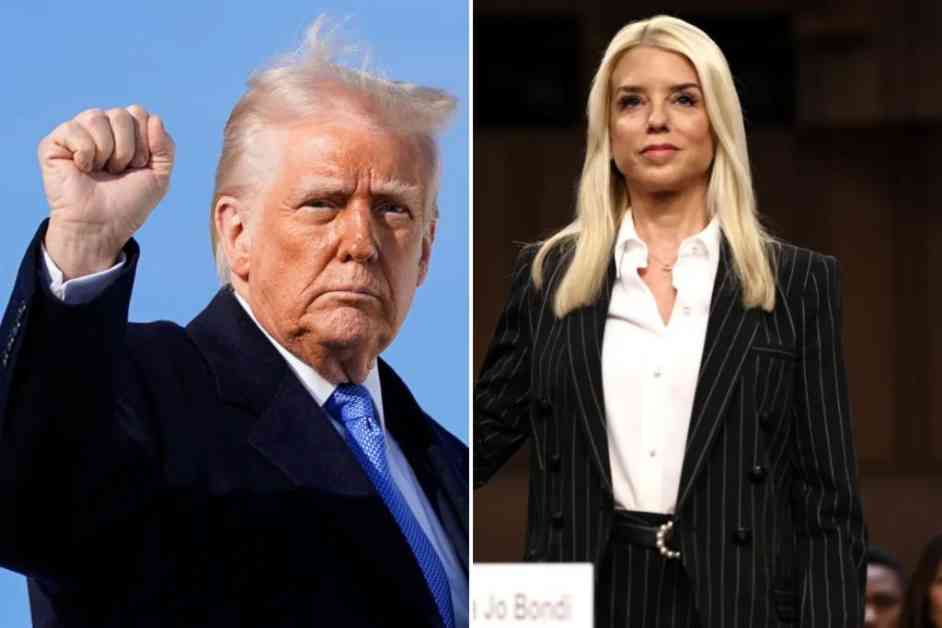President Trump has directed US Attorney General Pam Bondi to take action against law firms and lawyers who file “frivolous” lawsuits against the government. This move comes in response to what Trump describes as a long-standing issue of lawyers ignoring civil procedure rules to harass or cause unnecessary delay in legal proceedings. The President has tasked Bondi with recommending sanctions and additional measures to combat such practices.
Since late January, the Trump administration has faced over 100 lawsuits, prompting the President to exercise his executive powers to address legal challenges from law firms that have posed obstacles. The Justice Department under Pam Bondi has provided legal defense for Trump’s executive orders that have faced legal challenges, resulting in numerous injunctions against the President’s actions in recent months.
Challenges in the Courtroom
The courts have imposed 15 injunctions against President Trump’s executive orders in the past month alone, surpassing the number faced by former Presidents Barack Obama and Joe Biden. These injunctions have halted various initiatives, including the attempt to revoke birthright citizenship and the use of wartime power to deport individuals from Venezuela. In response, Trump’s legal team has sought intervention from the US Supreme Court to limit lower courts’ ability to impose injunctions on his actions.
Crackdown on Legal Firms
President Trump’s directive to Attorney General Bondi includes a review of litigation against the government dating back eight years, encompassing his first term in office. Trump has called for measures such as reassessing security clearances and terminating government contracts with law firms found to engage in frivolous litigation. One example cited in Trump’s memorandum is the involvement of the Elias Law Group LLP in promoting the debunked Steele dossier during the Clinton campaign.
Trump emphasizes the importance of law firms and attorneys in upholding the rule of law, justice, and order. He has requested updates from the Attorney General on law firms engaging in frivolous litigation against his administration. In recent times, the President has taken steps to challenge law firms that have opposed him, including efforts to restrict their access to security clearances and government contracts.
A notable case involves the law firm Paul Wiess, known for its work with Democratic clients, agreeing to provide $40 million in pro bono legal services to the Trump administration to overcome restrictions imposed by an executive order. This order would have limited the firm’s ability to represent clients before the federal government. Another firm, Perkins Coie, which played a role in the creation of the Steele dossier during the 2016 campaign, recently won a temporary restraining order against Trump’s executive order that would have restricted its lawyers’ interactions with government agencies.
President Trump’s actions highlight his determination to address legal challenges from law firms and lawyers that he views as obstructive. By directing the Attorney General to pursue sanctions and other measures against frivolous litigation, Trump aims to reinforce the integrity of legal proceedings and uphold the principles of justice and order. The President’s efforts to confront legal obstacles underscore the complex interplay between politics and the legal system in shaping governance and accountability.












